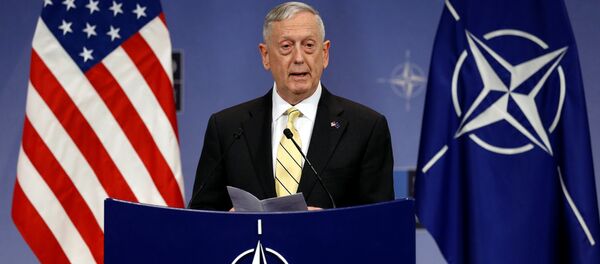"I think that we won't need to spend this magical 2 percent [on defense]. Why? Because we will be able to reach this threshold only by 2025 and the political situation in the world will improve much sooner. I am referring to the relationship between the United States and Russia, as well as probably the ties between the US and China. In this case what we are currently allocating on defense (more than 1 percent) will be enough. Eventually, defense spending could be reduced," he said.
The new US administration appears to have adopted a "carrot and stick" approach to the North Atlantic Alliance. President Donald Trump emerged as one of NATO's harshest critics when he called the alliance "obsolete" and chastised its member states for not "paying what they're supposed to be paying." He has also said that Washington remained committed to the bloc.
In 2015, only five countries, comprising the United States, the UK, Poland, Estonia and Greece, met the two-percent threshold.
Cerny, Deputy Chairman of the Parliamentary Committee for Defense and Security, refused to describe Mattis' remarks on the issue as an "ultimatum."
"I think that [the US defense chief meant] that the trend on increasing defense spending to 2 percent of GDP had to be maintained. However, ten to fifteen NATO members are definitely incapable of reaching the 2-percent threshold by the end of this year. The Czech Republic is certainly unable to do this," he said.
Cerny further commented on an idea of creating an EU army, saying that it was possible on in one case.
"We clearly understand that the North Atlantic Alliance makes no sense without the United States. If the US and Canada leave NATO, then European countries could establish a military alliance, but this bloc would be different from NATO and it will have other ambitions.
Never miss a story again — sign up to our Telegram channel and we'll keep you up to speed!



